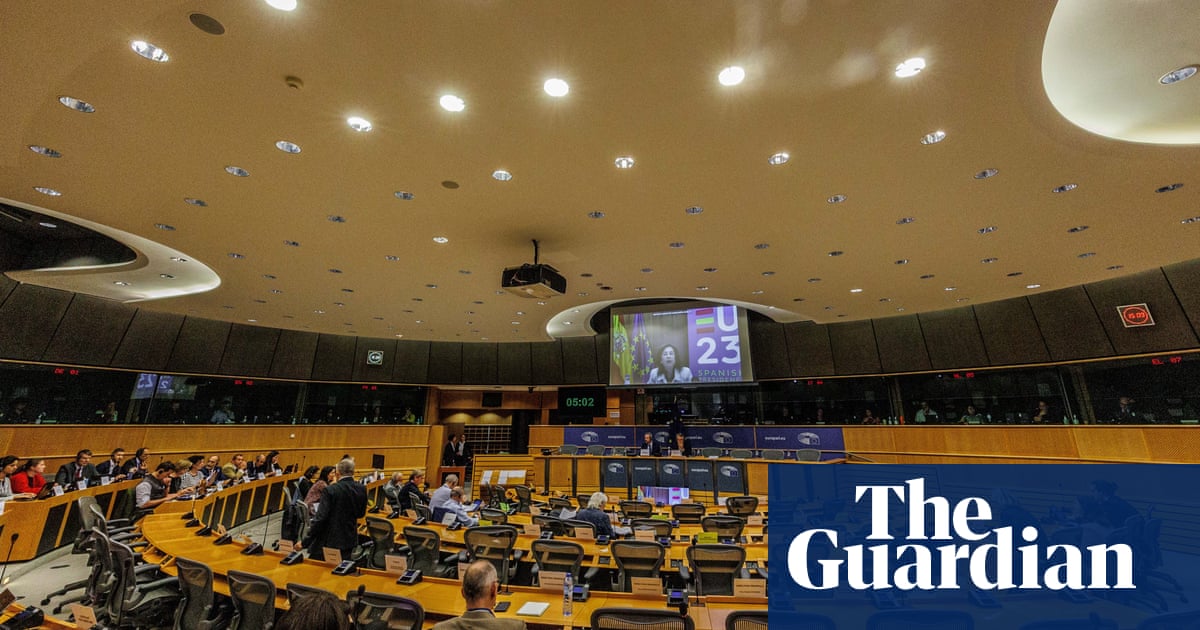
Traditionally the two biggest blocs in the European Parliament, the conservatives and the social democrats have been setting the agenda not just for the Parliament, but for the EU as a whole. Meanwhile, Germany and France, the two biggest members of the EU, have not only dominated the bloc, but also pretty much driven it toward closer integration and pushed key measures to give the EU the look, feel and substance it has today.
The results of the parliamentary elections, announced last Sunday, have been a setback to both the conservatives and the social democrats, not just in Germany and France, but indeed the entire EU. The socialists have been the biggest losers, with almost 20 percent fewer seats in the new Parliament. The conservatives have hardly done any better, with just over 19 percent fewer seats.
The biggest winner, in line with the trends seen in Europe over the last five years, was the extreme right, which has increased its tally by more than three times and is now the third-largest group in the Parliament, just behind the socialists. The extreme right has done very well in nations like Hungary and Poland but, strategically, its biggest gains have come in France, where Marine Le Pen’s National Rally topped the list with 23 percent of the votes. It was closely trailed by the liberal coalition, in which President Emmanuel Macron’s La Republique En Marche is the biggest partner. The socialists were nearly decimated in France, finishing bottom of the list of the parties that made it to the Parliament with just 6 percent of the votes. The conservatives were another also-ran with just over 8 percent. It was both of these groups’ worst ever performance.
In Germany, by contrast, the conservatives topped the charts with nearly 30 percent of the votes, and the social democrats did not fare too badly either, emerging third in the list with close to 16 percent. The extreme-right Alternative for Germany did worse than expected, with 11 percent.
The surprise performers across the EU were the Greens, who have emerged as a key power broker. In Germany, they are the second-largest group and hence are certain to influence the policies not just of the EU, but also the national governments in various countries.
With the Greens standing at the other end of the spectrum from the extreme right, the governments in various EU nations, especially France, will have to walk a tightrope so as not to upset either of these two powerful groups. Macron’s own popularity remains extremely low and he has not yet emerged from the shadow of the Yellow Vests protests that brought him and his government to their knees.
The relatively strong performance by the ruling coalition in Germany and the weakening of the extreme right is bound to boost the confidence of Chancellor Angela Merkel and her party, while Macron will have to find a way to fend off the challenge posed by Le Pen, especially in view of the municipal elections that will be held in France next year. Macron seems to be trapped between the two extreme ends of the political spectrum and cannot be seen to take steps that favor or penalize either.The big difference in outcomes between Germany and France, as well as the prevailing situation, is likely to further apply the brakes to the Franco-German motor. Already, Merkel is visibly cooler toward Macron and the chemistry traditionally seen between the leaders of these two nations is clearly missing in their case. The two have fairly different visions on the future course of the EU, notably how to deal with challenges such as Brexit, Russia and Donald Trump. Last year, France and Germany also presented contrasting proposals for the creation of a joint military command for the EU.
Already, there are reports of serious differences between Merkel and Macron over who should lead the European Commission once Jean-Claude Juncker steps down later this year. Merkel has backed her fellow German, Manfred Weber, who has already been nominated by the conservative group in the European Parliament. Traditionally, the Parliament appoints the candidate of the group that wins the highest number of seats. Here, Merkel’s group enjoys a comfortable lead over Macron’s liberal bloc. Yet Macron has attacked Weber openly, saying that the new team in the European Commission must enjoy the confidence of the people, referring to the fact that Weber has never held any government position.
This will complicate the process of replacing Juncker as this process has traditionally been done with France and Germany acting in tandem and pushing a common candidate, even if the two countries began by backing different people. In the past, the cordial relations between the leaders of the two nations helped them find common ground without any great difficulty. That seems a distant prospect now, looking at the cold relationship between Merkel and Macron. The EU could end up paying a heavy price for this friction within the motor that has always driven the European project.












